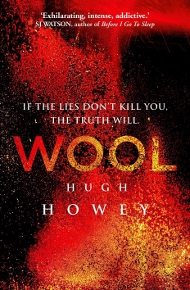- Is Hugh Howey Really Making $120,000/month From Amazon Kindle Fiction?
- What Is The Best Process For Starting In Self Publishing Ebooks?
- If You Have A Successful Digital Ebook How Should You Cut Deals With Publishers?
Full Interview Audio
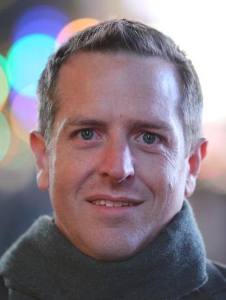
Personal Info
Hobbies and Interests:Photography & spoiling my dog. I’ve taken up paddle boarding, but I spend most of my time falling off.
Sports Teams:Whoever my wife is rooting for! I’ve learned the hard way.
Favourite Books:
- Ender’s Game by Orson Scott Gard
- Dune by Frank Herbert
- 1984 by George Orwell
Most Influenced By: My parents. Corny but true. My mother was a school teacher and my father a farmer, I consider them my best friends and really look up to them and try to model myself around their examples.
Twitter: http://twitter.com/hughhowey
Facebook: http://facebook.com/hughhowey
Company Website: http://hughhowey.com
Interview Highlights
This is a condensed, lightly edited transcript of an audio interview. The full audio is available and highly recommended. The interviewee may post clarifications in the comments.
Adrian Bye: Today I’m here with Hugh Howey. Hugh is doing some pretty amazing things in ebook publishing. He has published one of the top fiction books on Amazon Kindle and is really one of the very first people who is turning the dynamics of publishing upside down. I’m in absolute admiration and feel really honored for having you here. Hugh, thanks for joining us.
Hugh Howey: My pleasure. Thanks for having me, Adrian.
Adrian Bye: You set up writing a book and you published it, called Wool. Wool turned into a thing that people liked and so you wrote a whole lot of installments and turned it into a full book. Is that right?
Hugh Howey: I had actually seven or eight other novels out when I wrote Wool. It was just a short story I didn’t think much about. I threw it online and within months it was outselling everything else I had written. I had all these reviewers asking me to continue the story. So I dropped what I was working on and concentrated on writing more of this. I’m just finishing up the third novel of this series. I’ve spent two years writing about this underground world.
Adrian Bye: You had actually written seven or eight books that didn’t take off, and then the short story did?
Hugh Howey: I think I had sold about five thousand accumulative copies of these other stories by the time Wool took off. I thought this was pretty amazing for someone publishing their own books. But nothing like what happened with Wool where I started selling that many copies in a couple of days rather than in lifetime sales.
Adrian Bye: I don’t know how much you can tell about dollar volume, but you got yourself up to $120,000 a month in fiction ebooks, right?
Hugh Howey: Yes. I had some months better than that, but that’s about an average for the last year.
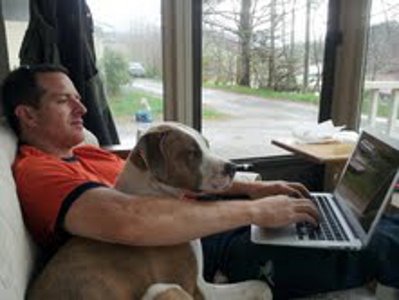
Adrian Bye: What is fascinating to me is I understood that you had written this book Wool and it took off. You actually had been working on it for quite a while and then you found this story that people liked and you built on it.
Hugh Howey: It was kind of sudden. I’d been writing for three years when Wool took off. A lot of people are three years in with writing and they are still trying to find an agent. They don’t have anything published. You might spend three years writing your first novel and then you spend a year calling agents; maybe you land an agent and another year getting a publishing deal and another year before the book comes out. I was writing two or three novels a year, was just publishing them, getting them out there and went on to the next thing. When Wool took off it was without any promotion or any sort of marketing or release event. It was very organic, reader word of mouth. It definitely took me by surprise. I did not see it coming at all.
Adrian Bye: Did you do anything at all? Amazon has all these different programs with cross-selling and promoting and things like that. Did you just do nothing and priced it at a buck?
Hugh Howey: Yes, I priced it at 99 cents and I forgot about it. I wasn’t going to devote my energy into a short story for 99 cents. I didn’t even put a link to it on my website. I was thinking my novels were the things that would eventually do well and so I fully neglected this short story. And that is the thing that shot up the charts and everyone told everyone else to read. So the market kind of showed me what to write more of rather than me trying to write something and force the market to accept it.
Adrian Bye: Would it have been better in hindsight to make it free rather than charge for it so more people can get it?
Hugh Howey: Yes. I actually ran promotions where I would have the thing for free. I would give away tens of thousands of copies. When you’re getting started you are just desperate for anyone to take the time to read your work. Pricing them as inexpensively as possible and giving them away to me makes complete sense as someone just getting their start.
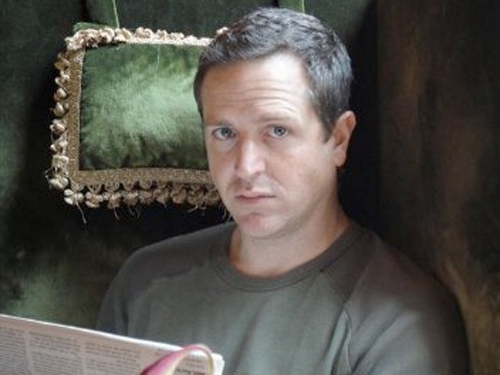
Adrian Bye: How do you know that it’s taking off? I guess you’re looking into your Amazon console to see your sales figures?
Hugh Howey: Yes. You can literally sit there and refresh your KDP dashboard and watch sales trickle in. I would check every week or so to see how my sales were and I noticed, oh my God, I sold like a hundred copies of this Wool story since the last time I checked. You wonder what the heck happened. Did the thing got mentioned somewhere? Why is this taking place? In one month I sold a thousand copies of the story. And I could sit there and refresh and watch the orders move through.
Adrian Bye: When you get a whole lot of traffic to a site or a lot of sales coming in you want to know where they are coming from. Were you able to reverse engineer and figure out what was going on? Where were people talking about you?
Hugh Howey: No I couldn’t. It was happening because one person would tell five other people they had to read this story, others two or three to check it out, and then they would repeat the process. I learned that from reading reviews, exchanging emails with readers and finding out how they heard about it. Later I could see a huge explosive increase in sales and pinned that on a specific media mention. Boing Boing did a review on their front page, Gizmodo put up the book trailer on their front page because the editor-in-chief there was a huge fan. And when that kind of thing would happen I would see a ten times or twenty times increase in sales. Having real time sales data like that would tell me these are the media events that moved books and these are the events that don’t really affect it at all.
Adrian Bye: Which were the ones that tended to affect and not affect?
Hugh Howey: The ones that affected it the most were the ones where you don’t normally see a book review. The Boing Boing and the Gizmodo mentions were huge because these are places where books aren’t mentioned but have a huge audience. So when someone says you should read this book they don’t tell you to read any other book. Just that book, and you get a huge rate of people going on to explore your work. When you get a review at a book review website it’s kind of drowned up by all the other book reviews on the website. Even getting major media like Wall Street Journal and some major television networks that covered the story, they didn’t move the needle nearly as much as a major website that had millions of viewers that were told about one book at a time.
Adrian Bye: Are you saying that traditional media was less effective, that going on Good Morning America is less effective than Gizmodo, for example?
Hugh Howey: If you got on Good Morning America that would be pretty effective. I think it’s the places that have communities built into them. I did a Reddit AMA that I get so much positive feedback from. I just spent the whole day answering questions that came in. And I still get emails from people who say they found out about the book through Reddit. A lot of redditers create sub-reddits to discuss the work and that seems to have a much longer-lasting effect than being part of a machinery that is constantly promoting books. I still value those machines. But working as a bookseller I saw that being even on the cover of the New York Times Book Review didn’t sell a lot of books. That’s pretty amazing because it used to be if you got into the New York Times Book Review that really nudged the needle. It just doesn’t seem to anymore.
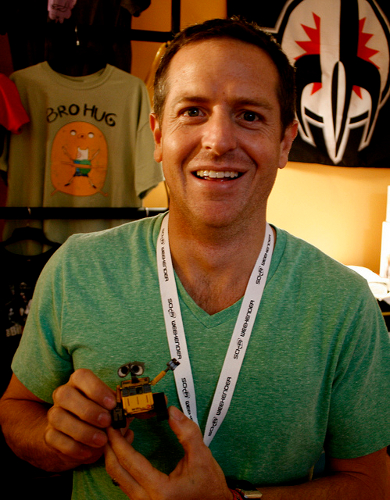
Adrian Bye: What you are saying is that the power of balance is starting to shift from all of the traditional stuff to the online stuff in terms of PR.
Hugh Howey: That’s why the President does a Reddit AMA now. We’re trying to tap into where people spend their time. I see people spend so much more time browsing the web and just going to a handful of websites over and over again rather than sitting and watching news on the television or reading the paper. I think it’s important to do whatever you can. I don’t spend a lot of time reaching out to do networking, I just accept anything when people contact me and want to interview me, ask me a few questions or talk to me about anything, I just say yes all the time. I don’t shun one fashion of the media but I have been able to see which ones have worked well for me and it’s been the ones that I’d least expected.
Adrian Bye: What’s really fascinating about what you’re doing aside from how you started is how you then continued because the expectation is you’ve got your ebook selling and now what you need to do is go to New York City and sign a 7-figure deal and hand over all of your copyright and everything else. That is how it works. And you didn’t do that.
Hugh Howey: I was able to quit my day job and pay my bills on my digital rights. They were more lucrative than what I’ve been offered for my print rights and my digital rights. I would explain the publishers I’m making in a couple of months what you are offering me for lifetime rights. I just don’t see how you’re going to sell that many extra copies of this work or have the long-term interest to justify selling this off. Let’s say twenty years from now I can make all these books that I own free and use that to generate more interest in a new series that I’m writing. I would never get a publisher to make my work free. What I saw really early on was how these books were going to be available forever, and I would much rather have control and ownership of them than a publisher. I have the ability to price my books as low as I want.
Adrian Bye: Do you actually have conversations with the publishers where you had to say no, or you didn’t even talk to them on this topic?
Hugh Howey: We turned down quite a few offers. My agent started shopping the book around. She was just interested in having these conversations to get publishers used to hearing that we need different sorts of contracts than the normal variety than these folks that are already bestsellers. Wool has been on the New York Times bestseller list a few times without a publisher’s support. We went through three rounds of offers and over a year period we probably had seven or eight offers from major publishers. They started in the six figure range and went up into the 7 figures. We just kept turning them down until Simon & Schuster came to us with this print-only deal which was one of the things that we were interested in. I keep the digital rights where I was earning so much and have them have the physical book rights and they can distribute to book stores.
Adrian Bye: What’s fascinating to me about you and why I reached out to you is you had to be an entrepreneur the way you handled this. You’ve hung onto all of the rights. That probably wasn’t a lot of effort to do, but you’re setting things up where if you end up with something like Fifty Shades of Grey on your hands, you are going to own the movie rights. You are in an incredible position.
Hugh Howey: I don’t know if I can have a Fifty Shades of Grey without Random House behind you printing that many books and getting them in the front displays in the bookstores. It will be interesting to see if we ever going to see an online equivalent where someone is selling tens of millions of copies of the same books series. It hasn’t happened yet. I did sign my film rights. I optioned them, so someone owns them for eighteen months. What’s really going to be interesting is if the film gets made. They’ve already written the screenplay and it’s in the hands of the film studio now. It’s never a done deal, but if they were to make a movie I’d be in a weird situation where I still own the book rights when the film is out. I don’t know if that has happened before, but it would get interesting very quickly.
Adrian Bye: I was astounded because I know what the press always talks about. Self-publishing is junk and you can’t make any real money publishing books.
Hugh Howey: What’s really heartening for me is the people who are making enough to supplement their income or quit their day job who you don’t even hear about. There’s a lot of people out there making thousands of dollars a month on their ebooks. They have enough readers who have heard of them and are reading all of their material. They are publishing enough material that they are making a solid living. That’s a new phenomena. The mid-list author in traditional publishing has a day job, they don’t earn enough to write on their own. It’s hard to make it as any sort of a writer, but what we are seeing with self-publishing is there are so many more people doing it and so many more people reading. There is more money in the pockets of authors, and I think that’s something to be celebrated.
Adrian Bye: Yes, absolutely. Your story is a success story from Amazon Kindle. What percentage of your sales are on other platforms and which ones actually matter to you?
Hugh Howey: They all matter to me in that I have people email me that say when is your book going to be available on Kobo or Barnes & Noble, or iTunes. I don’t want to upset readers by not having my work available in various markets. They are all important from that perspective. From a percentage, I probably do 90 to 95% through Amazon. That’s my personal percentage. Industry wide it’s much lower, I think they have forty or fifty percent of the market, iTunes is fifteen to twenty percent.
Adrian Bye: Is there anything you want to tell us that we haven’t covered?
Hugh Howey: It’s such an interesting time to be writing and reading. I’ve been very lucky to have been doing this while the industry changed like it did.
Adrian Bye: Congratulations for making it happen. It’s amazing. So, thank you very much for the interview.
Hugh Howey: My pleasure. Thanks for having me.



